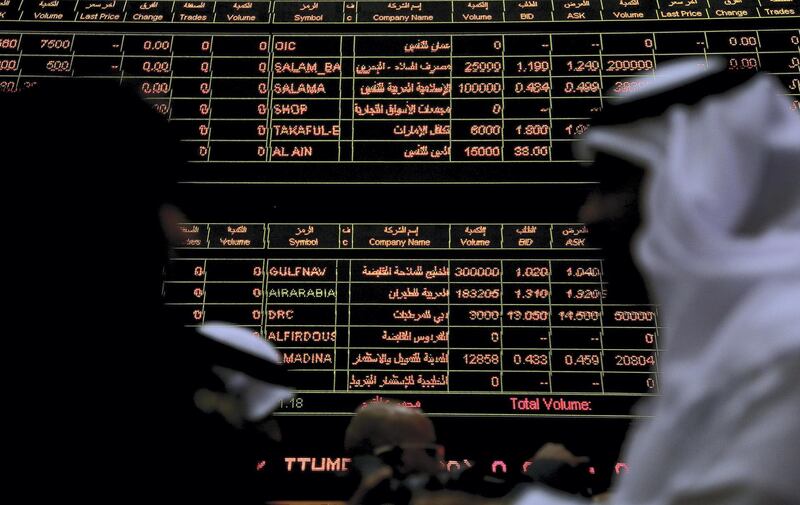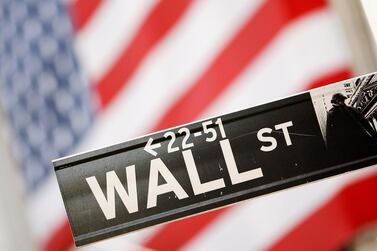In March 2020, the Financial Times reported that Covid-19 had put an abrupt halt to the "rapidly expanding $6 trillion ETF industry". Fear and caution reigned amid concerns about a looming global economic meltdown.
However, despite the coronavirus pandemic, exchange-traded funds have proven to be a resilient investment, with investors ploughing $428 billion in new cash in ETFs so far this year, up 57 per cent compared with the same period last year.
This year, with the introduction of home-grown ETFs, it is time for investors in the Gulf to wake up to ETF opportunities.
Introduction to ETFs
An ETF is a low-cost, transparent and robust way to invest in a basket of assets, such as stocks, bonds or commodities, which are pooled together and traded on a stock exchange. An investor, therefore, does not need to invest in every single listed company or asset, but can achieve exposure to the whole basket of an index’s constituent assets at a low cost, while not having to worry about hidden costs and fees.
Fees charged on an ETF are represented by a total expense ratio that is used to cover the multiple costs, including but not limited to auditors, custodians, depositary, regulatory and the fund manager. Hence, the ETF fees include the services offered by different service providers to maintain the investment with no hidden costs.
An ETF – essentially a legal wrapper for different strategies – can track the S&P 500 or FTSE 100 index, or a particular industry such as technology, banking or oil and gas. Commodity ETFs, such as gold or soybeans, and currencies ETFs, such as the euro or sterling, also exist. As a legal wrapper, it guarantees transparency, ease of trading and a highly regulated and monitored fund.
With such a broad offering, ETFs have become an increasingly popular way to diversify investment portfolios across multiple sectors, assets and countries to help spread risk.
Growth of ETFs
Global assets held by ETFs have reached $7 trillion for the first time, boosted by massive emergency public spending measures that helped drive a rebound in financial markets.
Commodity exchange-traded products (ETPs) saw net new inflows of $64.2bn in the first seven months of 2020, according to data from consultancy ETFGI, with floods of money going into gold ETPs.
Bond ETFs had a solid year with net inflows of $141bn as of the end of July, up $9bn from last year, and equity ETFs generated $113bn of net new money in the first seven months of the year, only marginally down from the same period in 2019.
Investors all over the world piled into ETFs either as security against headwinds or as part of diverse portfolio strategies. Investors in the Gulf, too, need to consider ETFs in this light.
ETFs in the Gulf
The region’s ETF environment is at a nascent stage. While ETFs tracking Gulf indexes and economies exist, only a handful of ETFs are listed in the region itself. ETF providers have a limited Gulf presence. Assets under management in Islamic ETFs are marginal, representing an estimated 0.01 per cent of the global ETF market. Knowledge about ETFs is low or concentrated to those with a financial services background.
This year, however, the region’s ETF landscape changed. In July, Chimera Capital launched the first ETF tracking a Sharia-compliant index in the UAE with the Chimera S&P UAE Shariah ETF. The ETF offers two share classes – an accumulation class and an income class offering investors the opportunity to capitalise on the UAE’s economic prospects. With Chimera’s two ETF offerings, the number of Mena-based ETFs has increased to seven.
This expansion has helped awaken an appetite for home-grown ETFs tracking Gulf indexes and assets.
Passive index tracking ETFs are worthwhile investment tools to anchor a portion of an investor’s portfolio while freeing up time to focus on alpha-generating ideas. It’s also a low-cost and hassle-free investment with an added benefit of dividend distributions in some classes.
And due to its robust and transparent nature, an ETF is also a fast and efficient investment tool specifically for retail investors, as it provides a balanced investment strategy that replicates a specific index with the ease of buying a single share.
ETFs are set to play a bigger role in the Gulf, providing investors with relatively simple and liquid access to the region –and investors from the region should take note.
Seif Fikry is the chief executive and Sherif Salem is the chief investment officer of Chimera Capital, an Abu Dhabi-based asset management company.







